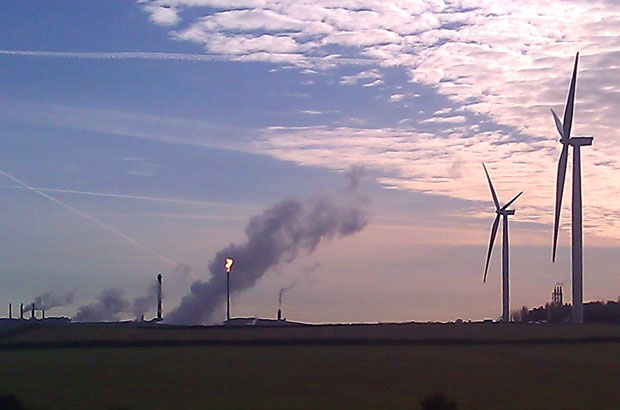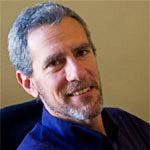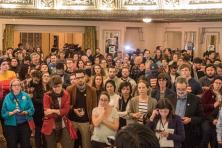Oil’s dominance will last only as long as they can bully us into believing we can’t have clean energy and better choices.
The Oil end game has begun. Affordable electric cars can already go a mile on 2 cents' worth of fresh sunshine. So the days of paying four times as much for the privilege of baking the planet and lining the Koch Brothers’ pockets are numbered.
Oil’s weakening grip on our economy and our democracy hangs by two letters: “No” is their whole game. The only question is how long we’ll accept that answer.
The campaign in opposition to I-1631 consists of $21 million worth of No – essentially all of it paid for by Oil. Now, if they had to campaign on their actual purpose, it would be a “Yes on Oil” campaign. But nobody’s buying that. Hardly anybody thinks endless oil dependence is a good thing. So Oil’s last binge of spectacular profits will last only as long as they can bully us into believing we can’t have clean energy and better transportation choices.
No, they tell us, 1631 isn’t affordable. It will increase the cost of energy and squeeze consumers. This is only true if we keep taking “No” for an answer. It relies on the belief that we can’t have what 1631 offers: clean energy, good jobs, climate solutions, affordable alternatives – so we DON’T have to pay the unthinkably high price of fossil fuel dependence. We will pay more for fossil fuels ONLY insofar as we lack alternatives. So, as a practical matter, when Oil says No on 1631, what they mean is “No, you can’t have energy and transportation choices. And as long as you don’t, you’ll pay whatever we damned well charge.”
No. Climate change isn’t real. Or maybe it is real, but it’s not caused by us. Or maybe it’s caused by us, but it’s really a good thing! Or maybe it’s a bad thing, but it’s already too late. Or maybe it’s not too late but it’s too big…. It’s a global thing, let the global people deal with it. It’s so confusing. But just remember this: No.
But no matter how many ways Oil says “No,” it’s the wrong answer; it will lose in the end. The fact that they have to spend so much money to beat us over the head with it is a clear indication that its power is waning. There is life after fossil fuels. Saying 'Yes' to clean energy is the only way forward to anywhere decent. You can see Yes from here.
Yet “No” remains stubbornly powerful, and not just because Oil has bought up so much of our cognitive real estate and plastered it with “No” signs.
Oil interests have bankrolled anti-government political campaigns for decades, eroding confidence in public institutions and collective action. Anti-tax crusader Grover Norquist famously named the quest: “to reduce government to the size where I can drag it into the bathroom and drown it in the bathtub.” Fossil fuel interests invested heavily in these campaigns, in part so they could fall back on distrust of government to defeat popular clean energy initiatives like I-1631.
“No” also has the immense advantage of confusion. When the President’s lawyer says “The truth isn’t the truth” and Russian bots appear to swing elections, we’re understandably wary…of everything. When in doubt – especially about anything that might have a cost associated with it – the default is No. Oil doesn’t have to convince anyone of anything; they can just blow smoke. They’re pros at that, having kept the Merchants of Doubt busy for decades deceiving consumers and investors about the devastating climate impacts of their product.
Chronic economic fear also helps keep No in power. It’s no coincidence that the one rich country in the world that has no climate policy is also the rich country with the weakest commitment to a basic level of economic security. The clean energy transition is urgently necessary, possible, and far cheaper than the climate consequences* of continued fossil fuel dependence. But in an economy that keeps so many people on the ragged edge of economic distress, “transition” of any kind is a risky proposition. The No campaign preys on this fear. It’s tough to reach out and say Yes to a better future when you’re hanging on to solvency with both hands. That’s why I-1631 addresses climate and economic inequity together, making solutions affordable for all.
But for all its entrenched power, the Oil industry’s Reign of No may meet its critical, fatal weakness in I-1631. No matter how many times they say No, and no matter how much money they pour into it, the people of Washington have the pen now. We can fill in that little oval next to “Approve.” Right now, on this question, just that squiggle of the pen could overpower all the No that Oil can buy.
The transition from the Fossil Fuel Age to the Clean Energy Era won’t happen overnight, and 1631 alone won’t do the whole job. But it will signal clearly that we’re done taking No for an answer. And that’s the only answer Oil’s got.
* Climate-related disasters cost over $300 billion in the U.S. last year. This cost is borne by victims and taxpayers, despite the fact that fossil fuel interests knowingly set these disasters in motion.





